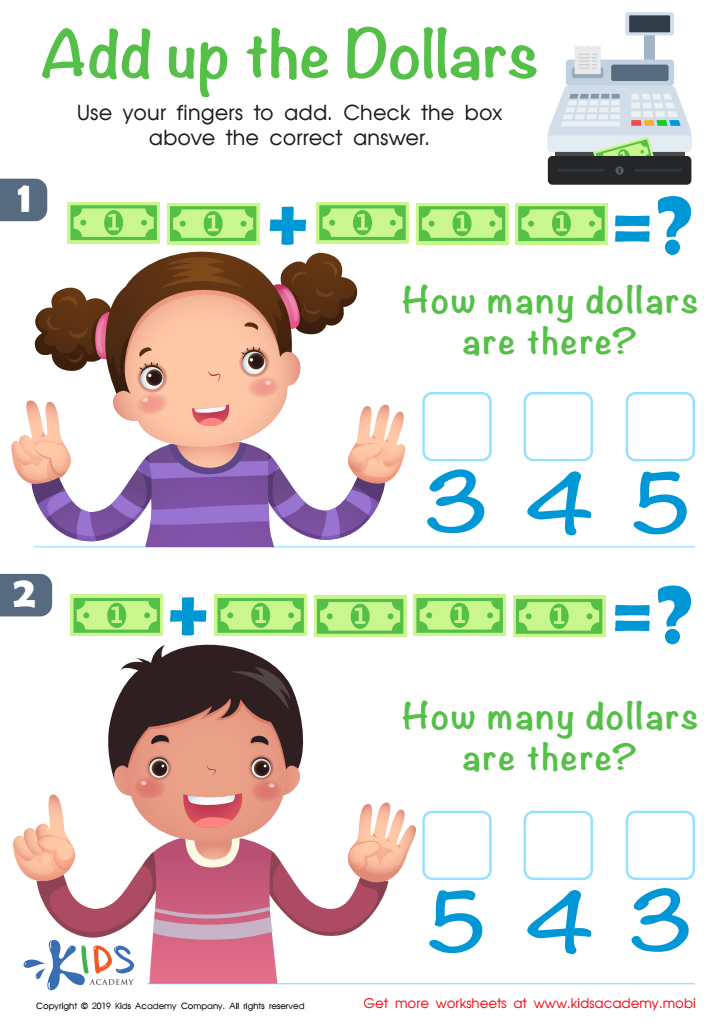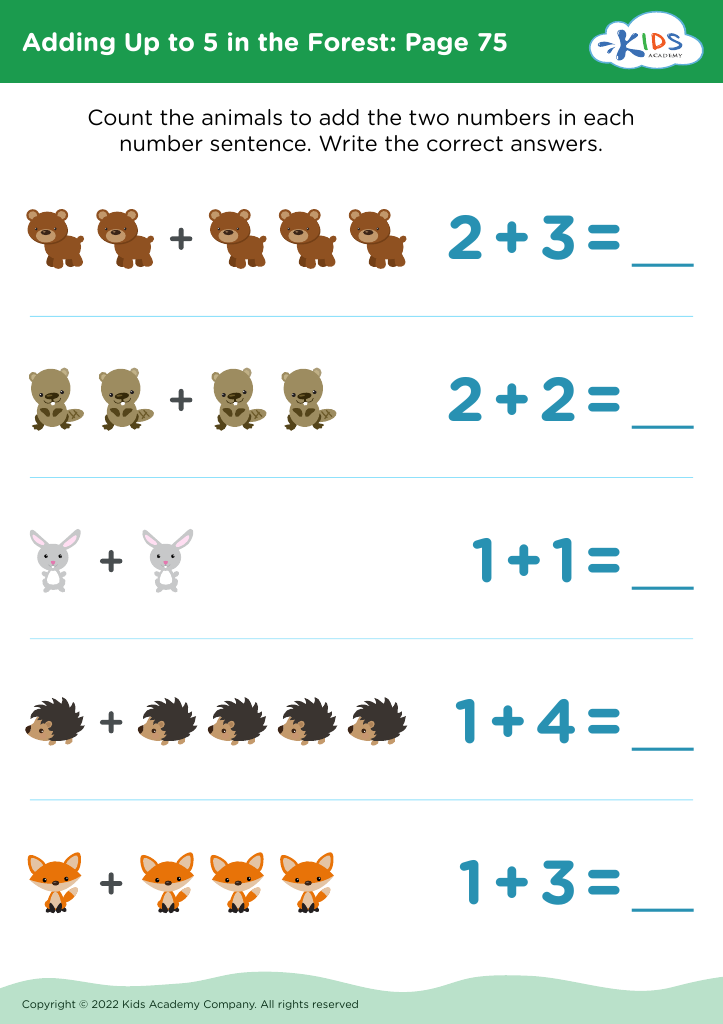Basic math practice Addition Worksheets for Ages 4-7
3 filtered results
-
From - To
Welcome to our Basic Math Practice Addition Worksheets, designed specifically for children ages 4 to 7! These engaging worksheets offer a fun and interactive way for young learners to master essential addition skills. Ideal for both home and classroom use, each worksheet is crafted to reinforce counting, number recognition, and basic addition concepts through colorful illustrations and clear instructions. Support your child's mathematical journey with activities tailored to their developmental stage, ensuring they build confidence and understanding in math. Download and print our worksheets to help your child develop a solid foundation in addition while having fun at the same time!


Add up the Dollars Worksheet
Basic math practice, particularly addition, is fundamental for children aged 4-7, making it crucial for parents and teachers to prioritize it. At this developmental stage, children begin to build their cognitive skills and number sense, which are essential not only for future math proficiency but also for critical thinking and problem-solving abilities across various subjects. Engaging in addition helps enhance their understanding of quantities and relationships, laying a strong foundation for more complex mathematical concepts later.
Moreover, practicing addition cultivate essential life skills, such as budgeting, cooking, and time management, which revolve around basic arithmetic. When children engage in regular math practice, they gain confidence in their abilities, reducing anxiety towards math as they grow.
Additionally, early exposure to math stimulates a child's curiosity and enthusiasm for learning, fostering a positive attitude towards education. Parents and educators play a pivotal role in creating an environment where math is both fun and engaging through games, activities, and hands-on learning experiences. By prioritizing basic math practice, parents and teachers help children develop essential skills that will serve them throughout their academic journeys and into adulthood. Empowering children with math foundations ultimately promotes lifelong learning and personal growth.



 Assign to My Students
Assign to My Students
















